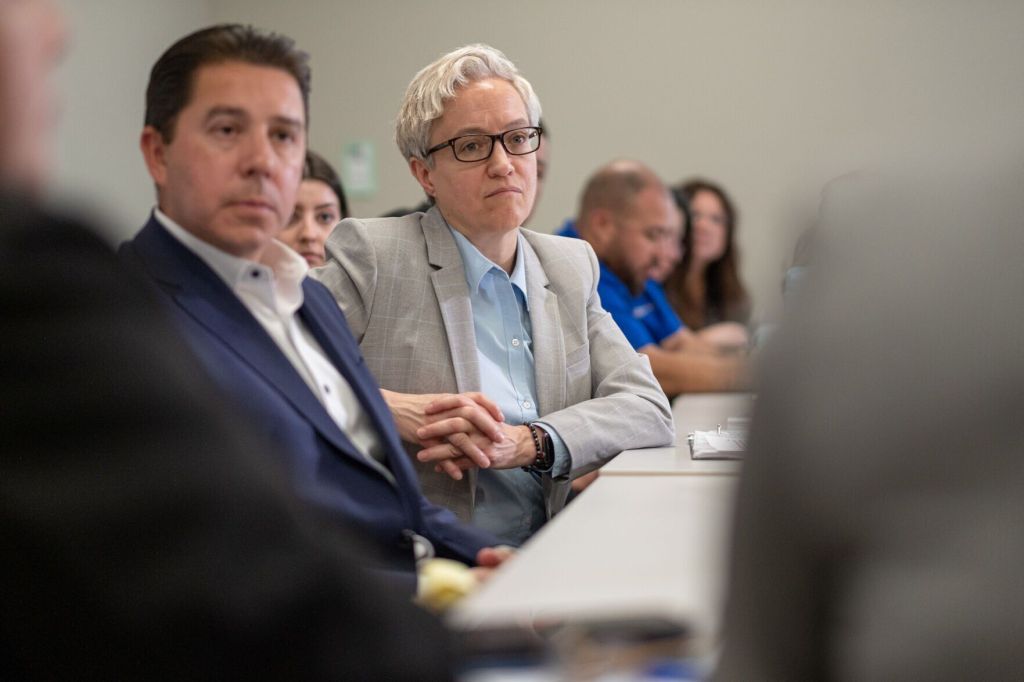Kotek injects urgency to solve Oregon’s ‘unacceptable’ public defense crisis
Published 3:00 pm Sunday, June 2, 2024

- Gov. Tina Kotek, center, meets with community leaders April 24, 2024, in Boardman to discuss the status of work on nitrate contamination and what support her team could provide to the community. The governor's office on Sept. 20, 2024, published its Nitrate Reduction Plan to address nitrate contamination in the Lower Umatilla Basin Groundwater Management Area.
SALEM — With six months to go before Gov. Tina Kotek assumes responsibility for the state’s public defense system, she told agency leaders Wednesday, May 29, to quickly come up with a plan to eliminate the crisis of unrepresented defendants.
The Oregon Public Defense Commission will switch from the Oregon judicial branch to the executive starting Jan. 1. The state has long struggled to provide public defenders to criminal defendants, a crisis that has ballooned in recent years and extends to people held in jail without lawyers.
As of Wednesday, the Oregon Judicial Department’s tally shows an estimated 3,200 people accused of crimes but lacking lawyers. The vast majority are out of custody.
Nearly 800 defendants in Jackson County don’t have lawyers, the highest number of any county. The number in Multnomah County stands at about 600.
Kotek’s letter to leaders of the public defense system infused new urgency into the crisis, which has limped along without a meaningful resolution even as the Legislature last year pumped millions into public defense.
The governor said she expects the commission to “effectively serve Oregonians from its first day in the executive branch.” She called the situation unacceptable, saying the state “cannot allow the current state of affairs to be normalized.”
“While this crisis is many years in the making, it is up to OPDC to identify solutions and work towards resolving this crisis,” Kotek wrote the 13-member commission, which is chaired by Jennifer Nash, a Corvallis lawyer.
Nash did not immediately respond to a request for comment.
She told the commission to make resolving the crisis a top priority and provide her with a plan to “eliminate Oregon’s unrepresented client crisis in both the near and long term” by Aug. 1. She said the plan should be “based in the realities of the current fiscal and legislative environment.”




